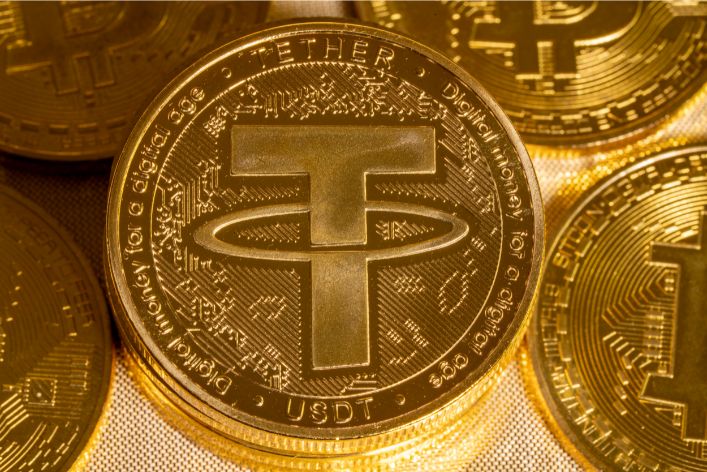TRC-20 tokens are a type of cryptocurrency built on the TRON blockchain network. They are similar to ERC-20 tokens on the Ethereum network, which are widely used in decentralized finance (DeFi) applications.
Gas fees, on the other hand, refer to the fees paid by users to miners for verifying transactions on the blockchain network. Gas fees are essential to blockchain technology, as they incentivize miners to process transactions quickly and efficiently.
In this blog post, we will explore why gas fees for TRC-20 tokens are typically low compared to other blockchain networks. We will discuss the factors that contribute to low gas fees, the advantages of low gas fees, and the use cases of TRC-20 tokens with low gas fees.
Related: What do Gas Fees mean in Blockchain?

Gas Fees in TRC-20 Tokens
Before we dive into the reasons for low gas fees in TRC-20 tokens, let’s first understand what gas fees are and how they work. In a blockchain network, transactions are verified and processed by miners.
Gas fees are the fees paid by users to miners for verifying transactions. The term “gas” refers to the computational effort required to process a transaction.
In these tokens, gas fees are paid in TRX, the native cryptocurrency of the TRON network. The amount of gas fee paid depends on the complexity of the transaction and the network congestion.
The more complex the transaction, the higher the gas fee. Similarly, when the network is congested, the gas fee increases as miners prioritize transactions with higher fees.
Gas fees in TRC-20 tokens are typically low compared to other blockchain networks like Ethereum and Binance Smart Chain. This is due to several factors that contribute to lower gas fees.
Related: Differences and Similarities Between Cryptocurrency Tokens and Coins

Factors Affecting Gas Fees in TRC-20 Tokens
Network Congestion
One of the primary factors that affect gas fees in TRC-20 tokens is network congestion. When the number of transactions on the network exceeds the capacity of the miners, the network becomes congested, and transactions take longer to process.
In such situations, miners prioritize transactions with higher gas fees, resulting in higher fees for users. However, the TRON network is designed to handle a high volume of transactions, and congestion is relatively rare, resulting in lower gas fees.
Supply and Demand
Another factor that affects gas fees in TRC-20 tokens is supply and demand. More users will be making transactions when there is high demand for TRC-20 tokens, resulting in higher gas fees.
On the other hand, when demand is low, gas fees will be lower. TRC-20 tokens are not as popular as other cryptocurrencies, resulting in lower demand and lower gas fees.
The Efficiency of the Blockchain Network
The efficiency of the blockchain network also affects gas fees. The TRON network is designed to be efficient, with high processing speed and low fees.
Innovative Tech Solutions, Tailored for You
Our leading tech firm crafts custom software, web & mobile apps, designed with your unique needs in mind. Elevate your business with cutting-edge solutions no one else can offer.
Start NowThe network can process up to 2,000 transactions per second, making it faster than Ethereum and Bitcoin. This efficiency results in lower gas fees for users.
Transaction Complexity
Transaction complexity is another factor that affects gas fees in these tokens. The more complex the transaction, the higher the gas fees. Complex transactions require more computational power to verify, resulting in higher gas fees.
Examples of complex transactions include smart contract execution and token transfers involving multiple addresses. Simple transactions like token transfers involving a single address have lower gas fees.
Read: All You Need To Know About Cryptocurrency
Advantages of Low Gas Fees in TRC-20 Tokens
Here are five advantages of low gas fees in TRC-20 tokens.
Accessibility and Affordability
One of the significant advantages of low gas fees in TRC-20 tokens is accessibility and affordability. Lower gas fees make it easier and more affordable for users to make transactions on the network.
This accessibility encourages more users to adopt TRC-20 tokens, resulting in a larger user base and more transactions on the network. The low gas fees make it easier for users to enter the market and participate in various activities like trading, gaming, and investing.
Faster Transaction Confirmation
Another advantage of low gas fees is faster transaction confirmation. As mentioned earlier, when the network is congested, transactions with higher gas fees are prioritized, resulting in longer wait times for users with lower gas fees.
However, with low gas fees, transactions can be processed quickly and efficiently, resulting in faster transaction confirmation times.
This makes the TRON network more suitable for applications that require fast and efficient transaction processing, such as gaming and trading.
Increased Activity on the Network
Low gas fees also encourage more transactions on the network. When gas fees are high, users may be discouraged from making transactions, resulting in lower activity on the network.
However, when gas fees are low, users are more likely to make transactions, resulting in increased activity on the network.
Cost-Effective Decentralized Finance (DeFi) Applications
Decentralized finance (DeFi) is one of the most significant use cases of TRC-20 tokens with low gas fees.
DeFi applications allow users to lend, borrow, and trade cryptocurrencies without intermediaries. However, the high gas fees associated with Ethereum and Binance Smart Chain make it expensive for users to use DeFi applications.
TRC-20 tokens with low gas fees provide a more affordable alternative for users to participate in DeFi applications. Low gas fees in TRON can create cost-effective DeFi applications, making them accessible to more users.
Remittance and Micropayments
TRC-20 tokens with low gas fees are also useful for remittance and micropayments. TRON has partnerships with several remittance providers, allowing users to send and receive payments quickly and efficiently.
Additionally, with low gas fees, users can send and receive small amounts of money without worrying about high transaction fees. This can be particularly useful for users who need to send and receive small amounts of money frequently.
Use Cases of TRC-20 Tokens with Low Gas Fees
Decentralized Finance (DeFi)
One of the most significant use cases of TRC-20 tokens with low gas fees is in decentralized finance (DeFi) applications.
DeFi applications allow users to lend, borrow, and trade cryptocurrencies without intermediaries. However, the high gas fees associated with Ethereum and Binance Smart Chain make it expensive for users to use DeFi applications.
TRC-20 tokens with low gas fees provide a more affordable alternative for users to participate in DeFi applications.
Gaming and NFTs
Another use case for TRC-20 tokens with low gas fees is in gaming and non-fungible tokens (NFTs).
TRON has been actively promoting its network for gaming and NFTs, with partnerships with popular games like Bitizens and partnerships with NFT marketplaces like Nifty Gateway.
Low gas fees make it easier and more affordable for users to participate in gaming and NFTs on the TRON network.
Summary
Gas fees for TRC-20 tokens are typically low compared to other blockchain networks, making them more accessible and affordable for users.
Seamless API Connectivity for Next-Level Integration
Unlock limitless possibilities by connecting your systems with a custom API built to perform flawlessly. Stand apart with our solutions that others simply can’t offer.
Get StartedFactors that contribute to low gas fees include network congestion, supply and demand, the efficiency of the blockchain network, and transaction complexity.
As the TRON network continues to grow, it will be interesting to see how low gas fees continue to play a role in the adoption and use of these tokens.
Before You Go…
Hey, thank you for reading this blog to the end. I hope it was helpful. Let me tell you a little bit about Nicholas Idoko Technologies. We help businesses and companies build an online presence by developing web, mobile, desktop, and blockchain applications.
We also help aspiring software developers and programmers learn the skills they need to have a successful career. Take your first step to becoming a programming boss by joining our Learn To Code academy today!
Be sure to contact us if you need more information or have any questions! We are readily available.










